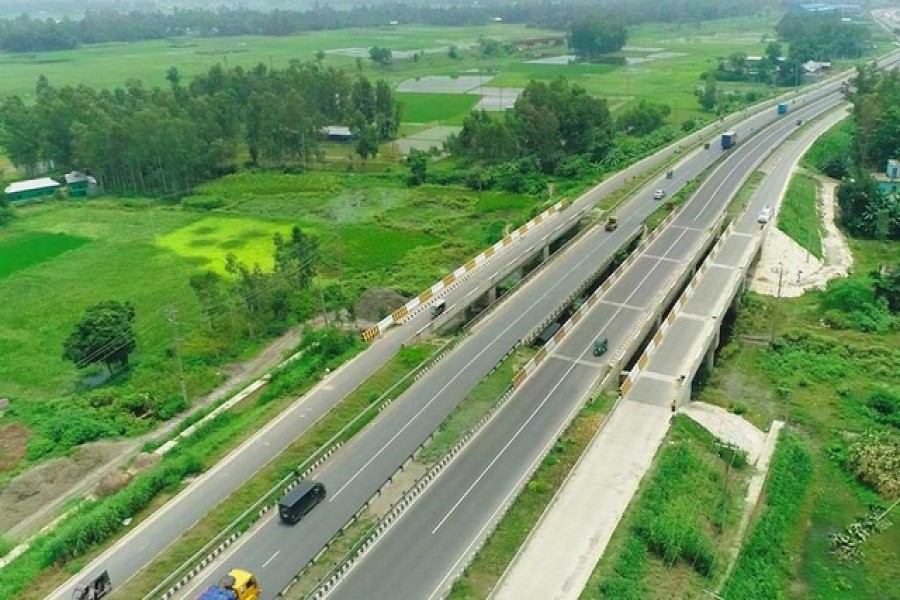The Asian Development Bank has approved a $1.78 billion multi-tranche financing facility (MFF) to improve mobility, road safety, and regional trade along the Dhaka–Sylhet trade corridor in Bangladesh, bdnews24.com reports.
The Dhaka–Sylhet corridor, once completed, will support a new trade route that connects Chattogram port with India’s northeastern states through the three land ports of Akhaura, Sheola, and Tamabil, and from there to Bhutan and Myanmar, ADB said on its website.
The corridor is also the centrepiece of the Bangladesh government’s planned Northeast Bangladesh Economic Corridor, which aims to promote key industries in the area, such as energy generation and production of construction materials, and to better integrate them with the rest of the economy in the country.
“Bangladesh’s export-driven economic growth has shown its unique potential and opportunity of becoming a regional transport and trade hub. To sustain this growth, the country’s transport infrastructure needs to be improved,” said ADB Transport Specialist for South Asia Satomi Sakaguchi.
“The project road is the main part of Road Corridor No. 5 under the South Asia Subregional Economic Cooperation (SASEC) programme. Its improvement will reduce logistics costs, increase competitiveness, and help expand regional trade with neighbouring South Asian countries, as well as providing safe access to the community members. By doing so, the investment project will contribute to the government’s goal of achieving inclusive growth and sustainable development.”
The SASEC Dhaka–Sylhet Corridor Road Investment Project will be delivered in four tranches. The $400 million first tranche of the MFF will help finance the initial works of the major contracts for the widening of about 210 kilometres of National Highway No. 2 along the Dhaka–Sylhet corridor from two lanes to four lanes. It will include 60 km of a footpath, 26 footbridges, and 13 overpasses. Its design will have features responsive to the needs of the elderly, women, children, and the differently-abled, as well as disaster and climate risks.
The government will fund $911 million of the $2.69 billion project. Apart from the MFF, ADB will also provide a $1 million technical assistance grant from its Technical Assistance Special Fund and an additional $2 million grant from the Japan Fund for Poverty Reduction, financed by the Government of Japan, to support capacity building of the Roads and Highways Department on road safety and maintenance, climate change, and gender equality and social inclusion.
Transport and trade facilitation are among the priorities of SASEC members, which since 2001, have invested more than $14.3 billion in projects in the region, including 43 transport projects worth $11.4 billion.


